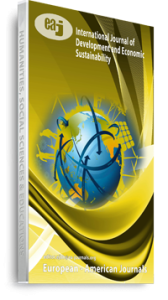Landmark studies and follow-up scholarly researches, as well as practical evidences around the globe on energy and major natural resources extractive industrial operations (EIOs), such as petroleum (oil and gas) and other mining and mineral resources EIOs, are consistently demonstrating that EIOs inhibit sustainable development (SD). Conversely, the findings of such foremost scholarly studies and their follow-up measures, as well as practical evidences regarding energy and major natural resources EIOs around the globe, are revealing that these operations may contribute to SD. In other words, EIOs may contribute to SD when they are implemented well, in conformity with international benchmarked standards and practices. In that case, EIOs are advantageous in the nooks and crannies of the world, when they are executed in a way that occasions socio-economic advancement in host countries, including resource-rich areas of such countries. In the circumstances, EIOs may be considered to have been implemented in ways that preserve the rights of members of the public, especially those that are adversely affected directly by extractive industrial projects, such as those of resource-rich communities, and when the benefits derived from these projects are directed towards overall public good in host countries. On this note, EIOs may contribute to SD in developing countries, through good environmental governance, towards generic good governance and overall public good. Considering the foregoing negative impacts and possible positive contributions of EIOs, this study will explore the costs and benefits of petroleum EIOs on the resource-rich and other direct negatively impacted host communities of Nigeria, in the framework of the country’s Petroleum Industry Act, 2021, concerning the development of host communities, and thereby arrive at appropriate findings.
Citation: Bristol-Alagbariya E.T. (2023) Costs and Benefits of Energy and Major Natural Resources Extractive Industrial Operations on Communities: Spotlight on Host Communities Development Regime in Nigeria’s Petroleum Industry Act, 2021, International Journal of Development and Economic Sustainability, Vol.11, No.1, pp.1-36,

